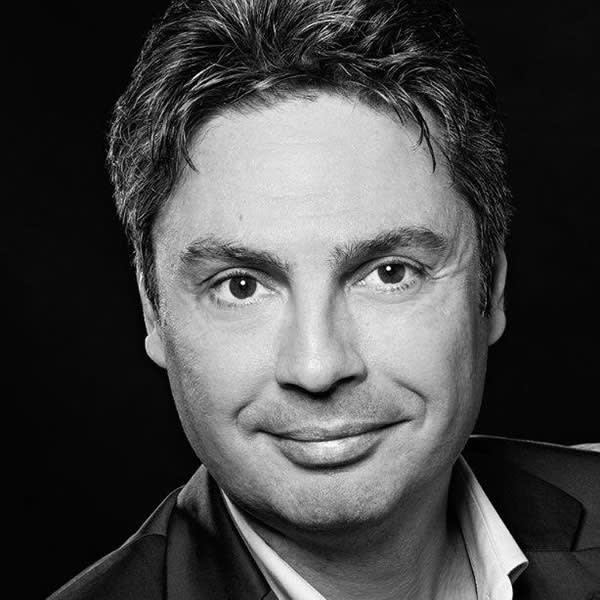Breaking News Emails
Get breaking news alerts and special reports. The news and stories that matter, delivered weekday mornings.
Dec. 3, 2018 / 8:51 AM GMT / Updated 8:58 AM GMT
By Carlo Angerer and Andy Eckardt
DUSSELDORF, Germany — Widely regarded as the world’s most powerful woman for more than a decade, Angela Merkel is seeing her time on the world stage draw to a close.
But the front-runner to replace her as the leader of Germany’s biggest political party laughed when confronted with the suggestion that she is little more than a Merkel clone.
“I think people see me as authentic, just like I am, with my ideas, my style of doing politics,” Annegret Kramp-Karrenbauer told NBC News after a campaign rally. “There are similarities with Angela Merkel, there are issues that separate us, and I’m showing that genuinely and authentically and won’t create an artificial separation because it has something to do with character and attitude.”
Merkel has led the center-right Christian Democratic Union (CDU) since 2000 and been Germany’s chancellor since 2005.
She announced last month that she would not seek re-election as chair of the CDU at the party’s conference this Friday and would also not run for chancellor at the next scheduled election in 2021. “I wasn’t born a chancellor,” she said at the time, “and I never forgot this.”
Around 4,000 party members gathered in Düsseldorf last week to listen to the candidates make the case for why they should follow in Merkel’s footsteps. Kramp-Karrenbauer is the most closely aligned with Merkel’s moderate policies.
“I’ve never known a CDU without Merkel,” said Dominic Hoge, 22, who traveled two-and-a-half hours by train to the regional conference. “I want to know where the candidates stand on the issues.”

Renate Rüttler, 72, who has been a party member for over four decades, said it was time for change.
“Mrs. Merkel has been here for a long time,” she said. “I want to see a different face.”
Rüttler said she had not made up her mind yet on who the best candidate was, but said she was ready to support Kramp-Karrenbauer if she can prove she is not “mini-Merkel,” as she has been branded by some media outlets.
“I would like for her to leave the Merkel lane,” she said. “I think she can do it. Everybody has to grow.”
Merkel’s open-door policy for refugees cemented her reputation as the strongest defender of liberal values on the world stage, even as she led a conservative party at home. About 1 million migrants arrived in Germany during 2015, and critics say that has spurred the rising tide of populism across Europe.
In recent years, the CDU has lost voters to the far-right Alternative for Germany (AfD), creating a challenge for its next leader.
Friedrich Merz and Jens Spahn, who are also running against Kramp-Karrenbauer, have promised a more conservative route forward.
Kramp-Karrenbauer, 56, was appointed as secretary general of the CDU in February. The move was widely seen as a sign that she is Merkel’s favored successor.
“Even though Chancellor Merkel never openly endorsed Kramp-Karrenbauer, it is well known that the two women have a very good and trustful relationship,” said Stefan Marschall, a political scientist at the Heinrich-Heine University in Düsseldorf.
But he added that Kramp-Karrenbauer is also “trying to distance herself from Angela Merkel.”
Kristina Dunz, a journalist who recently published a biography of Kramp-Karrenbauer, said that she is “clearly not a mini-Merkel” despite often being described as such.
But like Merkel she is known to be highly analytical in times of crisis, “rather unemotional” and very much “down to earth,” Dunz said.
On migration issues, the mother of three is perceived to be “much tougher and more conservative than Merkel,” according to Dunz.
She cited Kramp-Karrenbauer’s time as governor of the small German state of Saarland when she “made it clear that refugees should adopt to German values,” Dunz added.
Kramp-Karrenbauer told reporters at a recent press conference in Berlin that migration “is not issue No. 1, but it’s there as an issue, and there’s no point not talking about it.”
A poll of CDU supporters conducted by NBC News’ German partner ZDF found that nearly one-third of respondents described Kramp-Karrenbauer as “credible” and “personable.” Merz received only 15 percent in the same categories.
When asked “who would be more likely to represent the interests of ordinary citizens,” 33 percent of those polled named Kramp-Karrenbauer, with Merz at 9 percent and Spahn under 5 percent.

However, the poll suggested Merz — a corporate lawyer, finance expert and former member of Germany’s Parliament — was viewed as a more competent candidate (28 percent) than Kramp-Karrenbauer (16 percent).
At 38, Spahn is the youngest candidate, having been elected to Parliament at just 22. He currently serves as the health minister in Merkel‘s government, but has been a strong critic of her centrist views, especially on immigration.
Some party members at last week’s event in Düsseldorf, however, said Spahn got a little ahead of himself in presenting his vision for Germany in 2040.
No matter who is elected Merkel’s successor, her eventual departure will leave a void on both national and international levels.
But all three of the main candidates have vowed to strengthen Germany’s commitments to organizations such as NATO and the European Union.
“We have to acknowledge and discuss with citizens that Germany needs to take on more responsibility,” Kramp-Karrenbauer told NBC News. “One of the questions is, ‘Can we keep a functioning international order?'”

